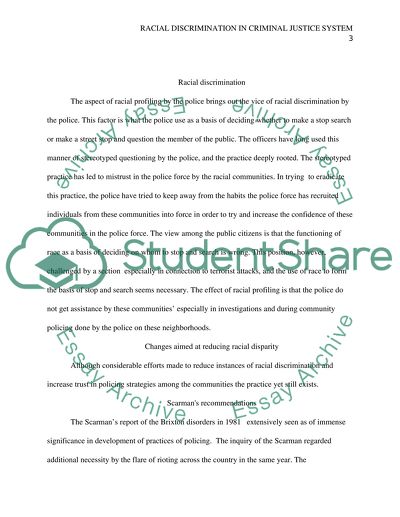Cite this document
(“Racial Discrimination in Criminal Justice System Essay”, n.d.)
Retrieved from https://studentshare.org/law/1397469-criminal-law
Retrieved from https://studentshare.org/law/1397469-criminal-law
(Racial Discrimination in Criminal Justice System Essay)
https://studentshare.org/law/1397469-criminal-law.
https://studentshare.org/law/1397469-criminal-law.
“Racial Discrimination in Criminal Justice System Essay”, n.d. https://studentshare.org/law/1397469-criminal-law.


